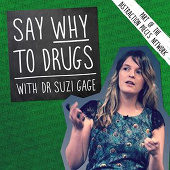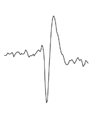There’s a great ongoing podcast series called A Neuroscientist Explains that looks at some of the most important points of contact between neuroscience and the wider world.
It’s a project of The Guardian Science Weekly podcast and is hosted by brain scientist Daniel Glaser who has an interesting profile – having been a cognitive neuroscientist for many years before moving into the world of art and public engagement.
Glaser takes inspiration from culture and current affairs – which often throws up discussion about the mind or brain – and then looks at these ideas in depth, typically with one of the leading researchers in the field.
Recent episodes on empathy and music have been particularly good (although skip the first episode in the series – unusually, there’s a few clangers in it) and they manage to strike a great balance between outlining the fundamentals while debating the latest ideas and findings.
It seems you can’t link solely to the podcast but you can pick them on the page linked below.
Link to ‘A Neuroscientist Explains’
 If you’re a podcast addict, you could no worse than checking out
If you’re a podcast addict, you could no worse than checking out 